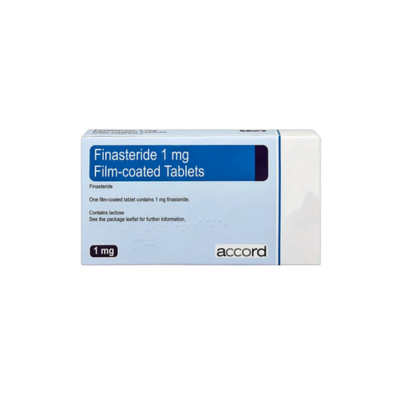Finasteride
- Promotes Hair Regrowth
- Slows Hair Loss
- Convenient Once-Daily Dosage
- Clinically Proven
Finasteride
Category:Hair LossFinasteride, also known as Generic Propecia, is a medication specifically designed to help men manage mild to moderate male pattern baldness. It supports hair regrowth, reduces hair loss, and is particularly effective for those with thinning hairlines or receding hair.
Fetching Data...
All inclusive services
No extra costs
Free tracked delivery
Delivered in plain packaging
Prescription included
No consultation charges
Frequently Asked Questions for Finasteride
Further Information
What It Is
Finasteride is a prescription medication classified as a 5-alpha reductase inhibitor. It is commonly prescribed to combat hair loss caused by dihydrotestosterone (DHT), the hormone responsible for male pattern baldness.
How It Works
Finasteride works by blocking the production of DHT in the scalp. By reducing DHT levels, it slows the progression of hair loss, promotes hair regrowth, and helps prevent further thinning.
How to Use
- Take one tablet daily, as directed by your healthcare provider.
- Swallow the tablet whole; do not crush or break it.
- Consistency is key—take the medication at the same time each day for optimal results.
Side Effects
Common side effects may include:
- Reduced libido
- Erectile dysfunction
- Ejaculation issues
- Breast tenderness or swelling
- Mild allergic reactions such as skin rash
- Palpitations or rapid heartbeat
- Testicular discomfort
- Liver function changes (detected through blood tests)
If any side effects persist or worsen, contact your healthcare provider. Seek emergency medical help for severe allergic reactions or symptoms like depression or breast changes.
Warnings and Precautions
- Not suitable for women or individuals assigned female at birth. Pregnant women must avoid handling broken or crushed tablets due to risks to an unborn child.
- Inform your doctor if you are undergoing a PSA test, as Finasteride may affect results.
- Contains lactose; consult a healthcare provider if you have a sugar intolerance.
- Fertility risks have been associated with prolonged use, especially in men with additional risk factors like smoking or obesity.
